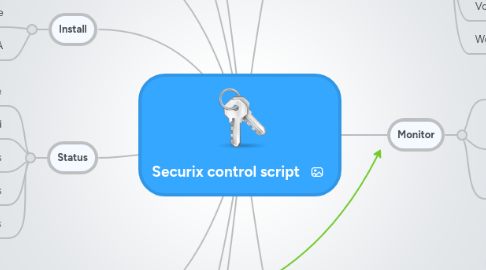Securix control script
da Martin Cmelik


1. User
1.1. Add
1.2. Remove
1.3. Kick
1.4. Check
1.5. Modify
2. Info
2.1. emerge --info
2.2. Securix version
2.3. dmidecode
2.4. sysctl -a
2.5. df
3. Patch
3.1. Check
3.2. File
4. Install
4.1. $service
4.2. GLSA
5. Status
5.1. Updates available
5.2. Message from motd
5.3. Affected GLSAs
5.4. Monitor alerts
5.5. Suspicious logs
6. Check
6.1. System
6.1.1. XCCDF + OVAL scripts
6.1.2. checksec.sh
6.1.3. rkhunter
6.1.4. paxtest
7. Update
7.1. System
7.1.1. emerge -uD world
7.1.2. revdep-rebuild
7.1.3. dispatch-conf
7.2. Kernel
7.2.1. Genkernel
7.2.2. Grub setup
7.3. Securix
7.3.1. Check version
7.3.2. Download package
7.3.3. Check signed package
7.3.4. Make backup of files
7.3.5. Update files
7.3.6. Post install commands
7.4. All
7.4.1. Securix
7.4.2. System
7.4.3. Kernel
7.5. config
7.5.1. $file (update system conf to recent version)
8. Firewall
8.1. Status
8.2. Add rule
8.3. Remove rule
8.4. Lock
9. Role
9.1. Auth server
9.2. Backup server
9.3. Binary package server
9.4. Certificate Authority
9.5. Cluster member
9.6. Database
9.7. DHCP
9.8. DNS
9.9. File server
9.10. FTP
9.11. IDS/IPS
9.12. Mail server
9.13. Monitoring (infrastructure)
9.14. Network security scanner
9.15. Reverse proxy
9.16. Scponly
9.17. Syslog central collector
9.18. VPN gateway
9.19. VoIP
9.20. Webserver
10. Monitor
10.1. Exception
10.1.1. $file
10.2. Service
10.2.1. Add
10.2.2. Remove
10.3. Status
11. Config
11.1. Backup
11.1.1. Files/directories
11.1.2. Partitions/LVM
11.1.3. Databases
11.2. Bonding
11.3. Certificate
11.3.1. Add
11.3.1.1. SSL
11.3.1.2. CA
11.3.2. Generate
11.3.3. CSR
11.4. Firewall
11.4.1. Allow
11.4.2. Delete
11.4.3. List
